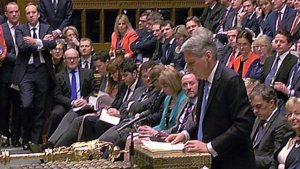- Residential property

Shorter Reads
What does the Budget 2021 mean for Residential property?
As anticipated, the Chancellor in his 2021 Budget has extended the current Stamp Duty Land Tax (SDLT) holiday and has also introduced additional measures in the hope of boosting the property market. Our Residential Property lawyers provide an overview.
1 minute read
Published 3 March 2021
Key information
- Specialisms
- Private Wealth
- Real Estate
- Services
- Residential property
SDLT
The current stamp duty holiday has been extended to 30 June 2021. The suspension on the first £500,000 of all property sales in England and Northern Ireland will therefore continue to apply. The holiday means that anyone completing a purchase on a main residence costing up to £500,000 would not pay any stamp duty. The previous threshold at which the tax kicked in was £125,000. More expensive properties will only be taxed on their value above this amount.
The Chancellor also announced that the floor for paying stamp duty will remain at £250,000 until the end of September.
It is hoped that the extension will encourage additional buyers onto the residential property market and although the holiday has been in place since July, it was feared that surveyors, agents and solicitors have been overwhelmed with demand which has slowed down the process with the risk that many would not be able to meet the 31 March deadline.
The Conveyancing Association, the Society of Licensed Conveyancers and the conveyancing network Bold Legal Group, previously wrote to the Chancellor urging him not to extend the deadline. These entities instead called for an extension to apply only for those transactions that were underway and this would prevent another panic and deadline pressure.
According to the Office for National Statistics, average UK house prices increased 8.5% in the year to December 2020 rising at their highest annual rate since 2014. The stamp duty extension may in turn lead to further increases in house prices as sellers take advantage of the saving that buyers are making. Further, the increase in demand may also cause prices to increase and therefore dissipate any stamp duty savings, therefore it may be the case that this scheme benefits sellers more than it does buyers.
95% Mortgages
The Chancellor also announced the return of 95% mortgages backed by the government scheme to aid first-time buyers.
The government will offer incentives to lenders to encourage lending and help people with small deposits get on the property ladder. Low deposit mortgages are often seen as riskier by banks as they are more vulnerable to negative changes in property prices – meaning people hold more debt than their home is worth. Under the scheme, the government will offer to take on some of this risk.
The details of the scheme are to be released but we believe that it will not be restricted to first time buyers or new build homes, but there will be a £600,000 limit.
However, again as with the SDLT holiday, economists warn that this scheme may cause house prices to rise as demand increases.
Related content
Shorter Reads
What does the Budget 2021 mean for Residential property?
As anticipated, the Chancellor in his 2021 Budget has extended the current Stamp Duty Land Tax (SDLT) holiday and has also introduced additional measures in the hope of boosting the property market. Our Residential Property lawyers provide an overview.
Published 3 March 2021
Associated sectors / services
Authors
SDLT
The current stamp duty holiday has been extended to 30 June 2021. The suspension on the first £500,000 of all property sales in England and Northern Ireland will therefore continue to apply. The holiday means that anyone completing a purchase on a main residence costing up to £500,000 would not pay any stamp duty. The previous threshold at which the tax kicked in was £125,000. More expensive properties will only be taxed on their value above this amount.
The Chancellor also announced that the floor for paying stamp duty will remain at £250,000 until the end of September.
It is hoped that the extension will encourage additional buyers onto the residential property market and although the holiday has been in place since July, it was feared that surveyors, agents and solicitors have been overwhelmed with demand which has slowed down the process with the risk that many would not be able to meet the 31 March deadline.
The Conveyancing Association, the Society of Licensed Conveyancers and the conveyancing network Bold Legal Group, previously wrote to the Chancellor urging him not to extend the deadline. These entities instead called for an extension to apply only for those transactions that were underway and this would prevent another panic and deadline pressure.
According to the Office for National Statistics, average UK house prices increased 8.5% in the year to December 2020 rising at their highest annual rate since 2014. The stamp duty extension may in turn lead to further increases in house prices as sellers take advantage of the saving that buyers are making. Further, the increase in demand may also cause prices to increase and therefore dissipate any stamp duty savings, therefore it may be the case that this scheme benefits sellers more than it does buyers.
95% Mortgages
The Chancellor also announced the return of 95% mortgages backed by the government scheme to aid first-time buyers.
The government will offer incentives to lenders to encourage lending and help people with small deposits get on the property ladder. Low deposit mortgages are often seen as riskier by banks as they are more vulnerable to negative changes in property prices – meaning people hold more debt than their home is worth. Under the scheme, the government will offer to take on some of this risk.
The details of the scheme are to be released but we believe that it will not be restricted to first time buyers or new build homes, but there will be a £600,000 limit.
However, again as with the SDLT holiday, economists warn that this scheme may cause house prices to rise as demand increases.
Associated sectors / services
- Residential property
Authors
Need some more information? Make an enquiry below.
Subscribe
Please add your details and your areas of interest below
Article contributors
Mandeep
MattuSenior Associate
Specialising in Commercial real estate and Residential propertyJanet
Armstrong-FoxPartner - Head of Private Client Real Estate
Specialising in Residential property
Enjoy reading our articles? why not subscribe to notifications so you’ll never miss one?
Subscribe to our articlesMessage us on WhatsApp (calling not available)
Please note that Collyer Bristow provides this service during office hours for general information and enquiries only and that no legal or other professional advice will be provided over the WhatsApp platform. Please also note that if you choose to use this platform your personal data is likely to be processed outside the UK and EEA, including in the US. Appropriate legal or other professional opinion should be taken before taking or omitting to take any action in respect of any specific problem. Collyer Bristow LLP accepts no liability for any loss or damage which may arise from reliance on information provided. All information will be deleted immediately upon completion of a conversation.
Close






















































